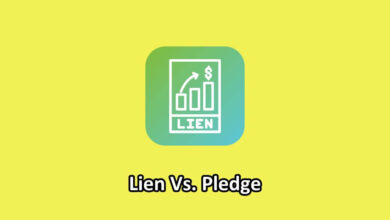In today’s complex legal landscape, understanding the nuances of penalties and fines is crucial. So, let’s dive into this topic, starting with a captivating hook to draw you in. Imagine this: You’re driving down the highway, enjoying the breeze, when suddenly you see those flashing red and blue lights behind you.
Penalties and fines are both forms of punishment for violating laws or regulations. However, they have distinct characteristics and purposes. Penalties typically involve a prescribed punishment for an offense, often determined by the severity of the violation. On the other hand, fines are monetary sanctions imposed as a penalty for breaking the law.
Penalty vs. Fine (Comparison Chart)
| Factors | Penalty | Fine |
|---|---|---|
| What are They? | Penalties typically involve a prescribed punishment for an offense, often determined by the severity of the violation. | On the other hand, fines are monetary sanctions imposed as a penalty for breaking the law. |
| Nature of Punishment | Penalties involve non-monetary sanctions such as community service or license suspension. | Fines are financial penalties imposed as a form of monetary punishment. |
| Severity of Offenses | They are typically reserved for more serious violations like felonies or major regulatory breaches. | They are often used for minor infractions such as traffic violations or administrative errors. |
| Legal Proceedings | Penalties may involve formal court proceedings, including trials and judgments. | Fines can sometimes be settled through administrative procedures without going to court. |
| Purpose | Penalties serve to deter and punish unlawful behavior, aiming at behavioral change and justice. | Fines primarily aim to impose a monetary consequence for violations, focusing on immediate financial consequences. |
What is Penalty?
Penalty, in legal terms, refers to the punishment imposed by authorities for violating laws, rules, or regulations. It serves as a consequence for unlawful actions, aiming to discourage repeat offenses and maintain social order.
They can take various forms, ranging from warnings to probation, community service, or imprisonment.
Types of Penalties
- Civil Penalties: These are fines or other penalties imposed by a civil court for non-criminal violations, such as traffic violations or regulatory infractions.
- Criminal Penalties: These are punitive measures enforced by criminal courts for offenses deemed serious enough to warrant criminal prosecution. They may include imprisonment, probation, or restitution.
What is Fine?
A fine is a financial penalty imposed by a court or other authority for a specified offense. It is calculated based on the severity of the violation and may vary depending on the jurisdiction and the nature of the offense.
Types of Fines
- Fixed Fines: These fines have a predetermined amount set by law or regulation for specific offenses. For example, speeding tickets often have fixed fines based on the speed exceeded.
- Variable Fines: Also known as discretionary fines, these penalties allow authorities to determine the amount based on factors such as the severity of the violation, the offender’s financial situation, and any mitigating circumstances.
Key Differences Between Fine and Penalty
- Nature of Punishment: Penalties involve non-monetary sanctions, while fines are financial penalties.
- Severity of Offenses: Penalties are typically reserved for more serious violations, whereas fines are often used for minor infractions.
- Legal Proceedings: Penalties may involve court proceedings and judgments, while fines can sometimes be settled through administrative procedures.
- Purpose: Penalties serve to deter and punish unlawful behavior, while fines primarily aim to impose a monetary consequence for violations.
Conclusion
In conclusion, understanding the distinctions between penalties and fines is essential for navigating legal systems and ensuring compliance with laws and regulations. By recognizing their purposes, applications, and key differences, individuals and organizations can better avoid legal pitfalls and contribute to a society governed by justice and accountability.
Throughout this exploration, we’ve uncovered the fundamental disparities between penalties and fines, highlighting their unique roles in the legal landscape.


